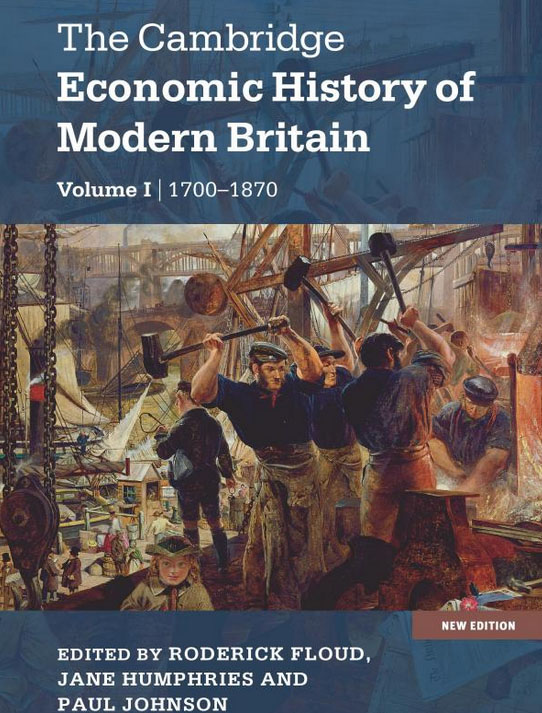The Cambridge Economic History of Modern Britain
Book Review

The Cambridge Economic History of Modern Britain, Volume 1: 1700-1870 by Roderick Floud, Jane Humphries and Paul Johnson (editors) (Cambridge University Press), 2014
495pp., £29.99 paper, ISBN 978-1-107-63143-4
The Cambridge Economic History of Modern Britain, Volume 2: 1700-1870 (Cambridge University Press), 2014
586pp., £29.99 paper, ISBN 978-1-107-68673-1
These two volumes are the fourth manifestation of The Cambridge Economic History of Modern Britain. There were earlier editions in 1981, 1994 and 2003 and it is interesting to look at these to see the different directions in which economic history has developed in the intervening decades. As with the earlier editions, this is a collaborative work combining the expertise of more than thirty leading historians and economists. Each chapter provides a clear guide to the major controversies in the field linking historical evidence with economic theory and apply quantitative methods. There are suggestions for further reading in each chapter to point students towards the most recent research.
Volume 1 considers Britain's economic history in the period between 1700 to 1870 from industrialisation to global trade and empire. The book discusses and deconstructs classic issues such as the causes and consequences of industrialisation, the role of institutions and the state and the transition from an organic to an inorganic economy. It also introduces new issues such as globalisation, convergence and divergence, the role of science, technology and invention, and the growth of consumerism. Throughout the volume, British experience is set within an international context and its performance set aside how its global competitors performed. Volume 2 explores the development of the British economy from late nineteenth-century global dominance to its early twenty-first century position as a mid-sized player in an integrated, if fragile, European economy. The chapters re-examine issues of Britain's relative economic growth and decline over the ‘long' twentieth century locating this in the context of its European and global competitors.
What these two volumes clearly show is the vibrancy of economic history, something paradoxically given a boost by the global financial crisis after 2008. This has brought economists and economic historians closer together...it's all a question of having the context something that remains woefully inadequate on many economics degree courses that has resulted in a internecine contest within many departments for what classic economists see as the ‘soul' of the subject. This is reflected in the increased focus on globalisation in these volumes. For any student of economics or economic history, these volumes should be required reading.

